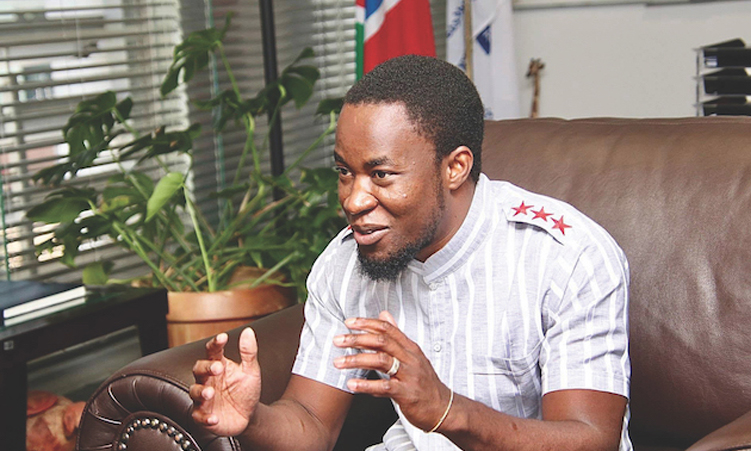Councillor Job Amupanda has taken issue with the City of Windhoek submitting their documents to the Office of the Attorney General for legal scrutiny.
During the monthly council meeting on Thursday, Amupanda’s concern was triggered by the recommendation that all cooperation arrangements with foreign cities are subject to the attorney general’s legal scrutiny.
This was stated as a recommendation to the proposal to sign an agreement between the municipal councils of Windhoek and Blantyre, Malawi.
Amupanda said the municipality remains independent from the giver in its bilateral relations.
“The city must be able to do their international relations independently of each other. Because if we start having a relationship with a city and that city starts behaving differently, the government is not more proud in terms of that. Because the government needs to know we’re not part of whatever it is they’re saying,” he explained.
The municipality’s manager for international relations, Chris Eita, says all City of Windhoek’s international agreements have always been endorsed by the attorney general.
“They have always encouraged us to share it with them because they are part of the international system,” Eita says.
Councillor Austin Kwenani says the general practice has been to use the Office of the Attorney General, and suggests it stay that way.
“I remember that in the past, we sent documents for a check with the Office of the Attorney General and it fits me very well,” he says.
The councillor says one of the reasons was that this cooperation agreement cannot in any way seem to contradict the state.
“There are areas of cooperation we want, but we don’t want the language that doesn’t speak to that. It’s just for that checking,” Kwenani says.
Amupanda disagreed, saying these are the municipality’s internal consultative processes.
“Essentially, it has nothing to do with us in terms of what the executive wants. Having it as a recommendation basically authorises it,” he said.
He suggested this be toned down.
“Maybe we can tone it down because legal scrutiny is what [our] legal [department] does. That’s what they do,” Amupanda said.
Windhoek mayor Queen Kamati proposes a change in the form of the recommendation in the council documents.
“Imagine a scenario where they do consultation and we are told this one cannot enter into a cooperation agreement,” she says.
Former mayor Fransina Kahungu agrees with Kwenani, saying that even on their foreign trips, they are given approval.
“I want to believe that there is a standing [agreement] where I will inform the Ministry of Urban and Rural Development in case of trips or visits,” she says.
Kahungu says the central government needs to be aware of the local government’s actions.
“The government knows very well what is happening. We are at the local government and the central government wants to know what is happening, even with us. Even countries, when they come here, the Ministry of International Relations and Cooperation is aware,” she says.
Stay informed with The Namibian – your source for credible journalism. Get in-depth reporting and opinions for
only N$85 a month. Invest in journalism, invest in democracy –
Subscribe Now!






